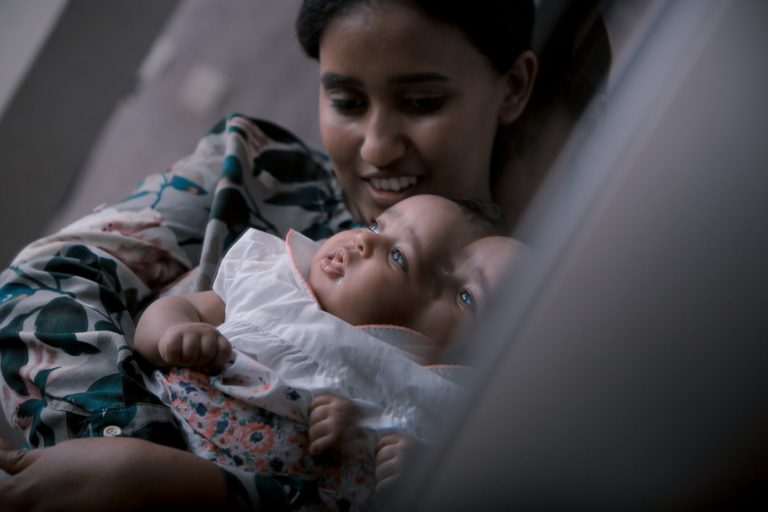Written by Mindy Schlechter, LSW, Galia Therapist
According to the National Institutes of Health, postpartum depression affects up to 15% of mothers following the birth of their babies. Genetics, hormonal fluctuations, past history of depression, and stress-of course-play a part in causation; however, have you ever stopped to think how much grief may be a part of the postpartum depression you or a loved one is experiencing?
Having a baby, or having another baby alongside an already existent mothering role, is a significant life transition, leaving in its wake several “losses” for women to comprehend and adjust to.
Common signs and symptoms associated with postpartum depression can mimic those of grief: in fact-the fourth stage of the famous Elizabeth Kübler Ross’s model of the stages of grief is depression. Other signs of grief include numbness, detachment, inability to enjoy life, isolation from others, trouble keeping your normal routine, increased feelings of blame, and overwhelming guilt.
It may be hard for some to imagine what there is to grieve following the birth of a new baby; however, significant transitions often mean that identities of our lives shift so quickly it can feel like a loss.
Here are some examples of ways women can feel a sense of loss after childbirth:
We may be feeling the loss of our previous lifestyle or ease of living prior to the new baby’s arrival. It is common to fantasize about what life will be like with that new bundle in our arms. Oftentimes, the fantasy doesn’t quite coincide with what we actually experience and we end up feeling forlorn towards certain simplicities that no longer exist. The addition of baby is full of beautiful blessings, but it can highlight shifts like less time with our partner or for ourselves that we likely had before the baby arrived. This can feel like “missing our old selves”.
We may be feeling a sense of loss toward expectations we were holding for what our postpartum journey would entail. People talk about the euphoria that can exist after birth and we want to believe that will be our experience, too. We’ve often spent countless hours arranging a perfect space for baby with all the newest and highly recommended baby items, as well as preparing through classes and other education. The demands of new motherhood, alternatively, can hit very rapidly leaving some with a sense of simply trying to “stay afloat.” Changes happen quickly and without warning or a manual to follow! In truth, the postpartum journey can feel lonely, isolated and exhausting.
We may be experiencing lamentation over the way our birth turned out; often not actualizing according to our “birth plan”. There’s a reason for the old adage, “the best laid plans…”! So many variables are involved in how our births turn out and what parts of those plans come to fruition. Feeling sad or guilty for how our birth trajectory changed is a common experience; however, we are often so busy immersed in new parenthood that we don’t take the time to feel the loss of that expectation.
We may be feeling the effects of significant birth trauma and experiencing grief surrounding that specific loss of safety. Sources through Prevention and Treatment of Traumatic Childbirth estimate that between 25-34% of women report births that were traumatic. Women can experience unwanted interventions, extremely precipitous and scary labors, traumatic staff interactions, and more. If through one of these experiences we’ve had our safety threatened, that’s certainly something to grieve, as every woman deserves a wonderful birth experience!
We may have so thoroughly enjoyed being pregnant and all the attention and accolade it brought along, that we experience a loss of that special time. Some women describe pregnancy as the most enjoyable time of their lives and report loving the experience (as well as the baby bump!). The progesterone is flying high and life can look pretty rosy through those glasses. We often do receive extra attention and attending-to which can certainly be a stark contrast to a postnatal world that demands everything we’ve got to meet the ever changing needs of baby.
We may be experiencing a loss of self related to our identity and shifting roles into motherhood. Mothering does not come naturally to all women and there is definitely a shift in things like control, independence, freedom and responsibility. These shifts can leave us with a “who am I” feeling as we navigate a new and reorganized sense of self; striving to rediscover our unique place in the world.
Viewing postpartum challenges through a lens of grief may already offer some softening or lightening to what you or a loved one may be feeling. For strategies to help you through the grief process, check out the companion post here. And if you could benefit from support during your postpartum journey, check out our Postpartum Thrive Circle starting April 17th.



As a postpartum depression expert, I agree that grief can be a part of the journey, and it’s important to acknowledge and address it for a healthier recovery.